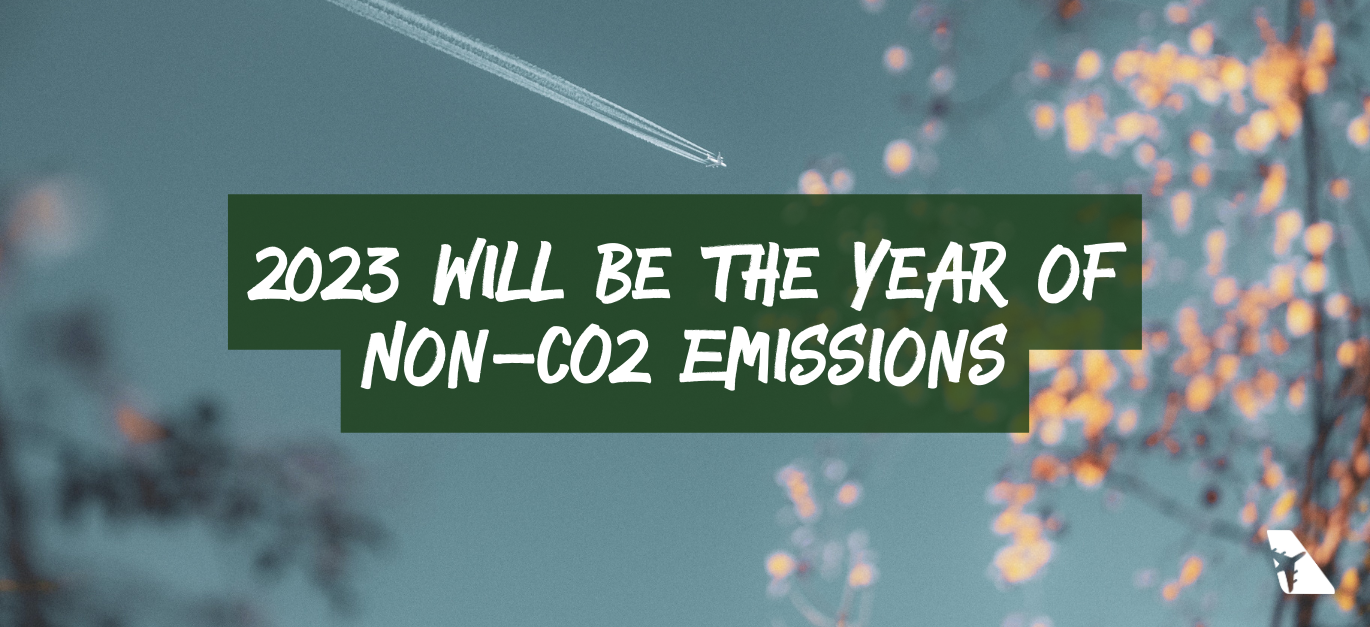ARTICLE
Holly Boyd-Boland, VP Corporate Development & Sustainab ...

Our new Sustainable Aviation 2023 Trends report looks at how and why the battle for climate action is expected to grow more heated this year and what visionary executives can do to stay ahead. Download the full report here.
Just months ago, a November episode of RTE’s “Hot Mess” podcast claimed that contrails are “at the centre of a conspiracy of silence about the climate damage that aviation is doing.”
While that may have been the case in previous years, contrails and non-CO2 effects are now extensively talked about.
For example, in her end-of-year blog post, Transport & Environment aviation director Jo Dardenne called CO2 emissions only “the tip of the iceberg”, with non-CO2 effects accounting for two-thirds of aviation’s climate impact.
For example, on a November flight from Washington to Abu Dhabi, Etihad worked with SATAVIA on contrail prevention.
In October, Delta Air Lines announced that it is collaborating with MIT on research to prevent persistent contrails, which are roughly 10% of all contrails.
Meanwhile, the Rocky Mountain Institute is at the head of a contrail impact task force that includes Bill Gates’ Breakthrough Energy as well as airlines such as Alaska, American, Southwest, Virgin Atlantic, United, Google Research and Imperial College London.
The good news is that solving the contrail problem is, compared to other challenges, potentially easier to solve.
In May, after working with KLM, SATAVIA CEO Dr Adam Durant said, “by implementing small changes to a minority of flights, eco-conscious operators can eliminate the majority of their non-CO2 climate footprint with minimal impact on day-to-day operations.”
As well as contrails, expect to see a more significant focus on nitrogen oxides. It’s worth noting that Amsterdam Schiphol’s 2023 flight cap is being justified on the basis of curbing noise and NOx.
Taxes being introduced in Brussels on short-haul and private jet flights similarly take NOx and CO2 emissions into account.
More aviation-specific sustainability updates and analysis can be found in our weekly Sustainability In The Air newsletter, led by SimpliFlying’s Research Director Dirk Singer. Do subscribe to our send-out to stay on top of the latest trends.
© 2022 SimpliFlying Pte. Ltd.